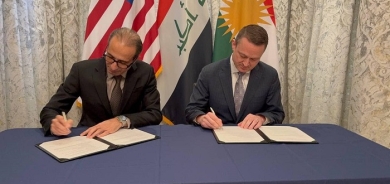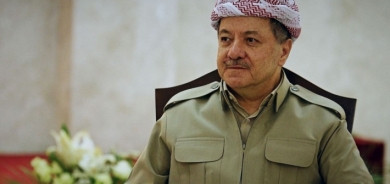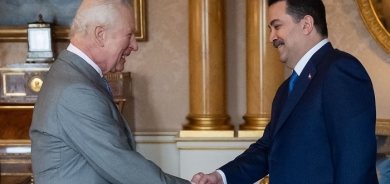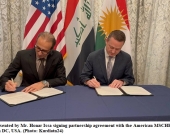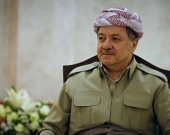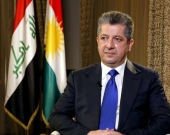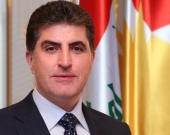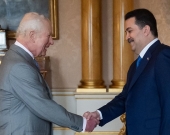Syria opposition meets to find leader, show it is ready for arms

Syria's fractious opposition coalition met on Thursday under pressure to name a new leader and prove to its Western and Arab backers it can be trusted with advanced weapons to beat back a concerted offensive by President Bashar al-Assad.
The opposition's inability to unite has made Western countries reluctant to send weapons, even as Assad's forces have seized the initiative in recent months and Washington and its European allies have vowed to aid his enemies.
Rebels are under siege in the strategic city of Homs and trying to hold on to swathes of territory across the country, while the opposition in exile has been unable to exert authority on the ground and halt strides toward radical Islamism.
The Syrian National Coalition has been without a leader for months after its head quit over disagreement about potential talks with Assad's government. It aims to agree on a new unified leadership at its talks in Istanbul.
Coalition insiders say its international backers want to avoid a repeat of a near debacle a month ago when last-minute intervention by senior officials from Turkey and Western and Arab countries was needed to keep it from disintegrating.
A new leadership for the body of mainly exiled politicians will also need to show that it can forge stronger links with the activists and rebel fighters inside Syria, the sources said.
Senior opposition figures met overnight to agree on a deal that would satisfy the three main players in the coalition: the Muslim Brotherhood, the only organized faction in the political opposition, a Saudi-backed bloc and a wing loyal to secretary general Mustafa Sabbagh, a businessman seen as Qatar's pointman.
Possible candidates to lead the opposition include Ahmad Jarba, a tribal figure well connected with Saudi Arabia, and Sabbagh himself.
Sources at the meeting said possible consensus candidates included Ahmed Tumeh al-Khader a veteran opposition figure, and Burhan Ghalioun, a professor based in Paris.
BOOSTING REBEL COMMAND
More than two years into a war that has killed more than 90,000 people, momentum has shifted in recent months in favor of Assad, especially since he gained the support of fighters from the seasoned Iran-backed Lebanese militant group Hezbollah.
Western countries opposed to Assad were predicting at the end of last year that the Syrian leader's days were numbered. But they now fear for the survival of the rebellion after Hezbollah fighters helped capture the rebel-held town of Qusair.
The West has had to balance its desire to aid the rebels with its worry that the rebellion has become dominated by militant Sunni Islamists, including groups allied to al Qaeda.
A senior opposition source in contact with U.S. officials said Washington, as well as French security operatives, were concentrating on supporting rebel units in the province of Aleppo on the border with Turkey, where new anti-tank missiles are helping reverse the military tide.
"I think we will be hearing good news from Aleppo soon. No one wants to repeat the weakness in logistics that allowed Hezbollah to take over Qusair and paved the way for the offensive on Homs," the source said.
Saudi Arabia has assumed a central role in backing the opposition and has begun limited delivery of sophisticated weapons to the rebels, with the United States playing a bigger role than before in supervising such shipments to keep weapons out of Islamist hands, diplomats in the region say.
"The Americans will have the final say on Saudi support. On the surface, U.S. military pledges are minimal, but indirectly, Washington's role is big," a Western diplomat said.
At the core of Western and Saudi strategy is boosting the Supreme Military Council, a centralized rebel command structure led by defectors from the Syrian army, to claw back Assad's advances and create a counterbalance to militant Islamists.
Kamal al-Labwani, a senior member of a liberal bloc of the coalition, said that the opposition has started to build up its military capability through the Supreme Military Council but Islamists still dominate the battlefield. He said he expected an increase in weapons shipments to rebels, dismissing U.S. and Russian plans for a peace conference, known as Geneva 2.
Washington and Moscow, Cold War foes supporting the opposing sides, announced plans for the peace conference in May but never agreed a date for it. Their relations have deteriorated rapidly as momentum on the battlefield swung in favor of Assad and Washington committed to aid the rebels.
"Geneva 2 is preparation for more war. Does anyone seriously think Assad would give up power to a transitional government that would order the army to take its tanks from the streets, release tens of thousands of prisoners and allow demonstrations?" Labwani said.
The rebels have been receiving light arms from Saudi Arabia and Qatar for many months, but say they need more sophisticated weapons to defeat Assad, including shoulder-fired anti-aircraft missiles to counter the government's big air power advantage.
The West is wary, because such missiles could be used by militants to threaten civil aviation. Diplomats said the United States is overseeing delivery of Saudi weapons after concern that shoulder-fired missiles sent by Qatar may have been delivered to jihadist fighters.
(Additional reporting by Warren Strobel and Susan Cornwell in Washington; Editing by Peter Graff and Robin Pomeroy)
By Khaled Yacoub Oweis


